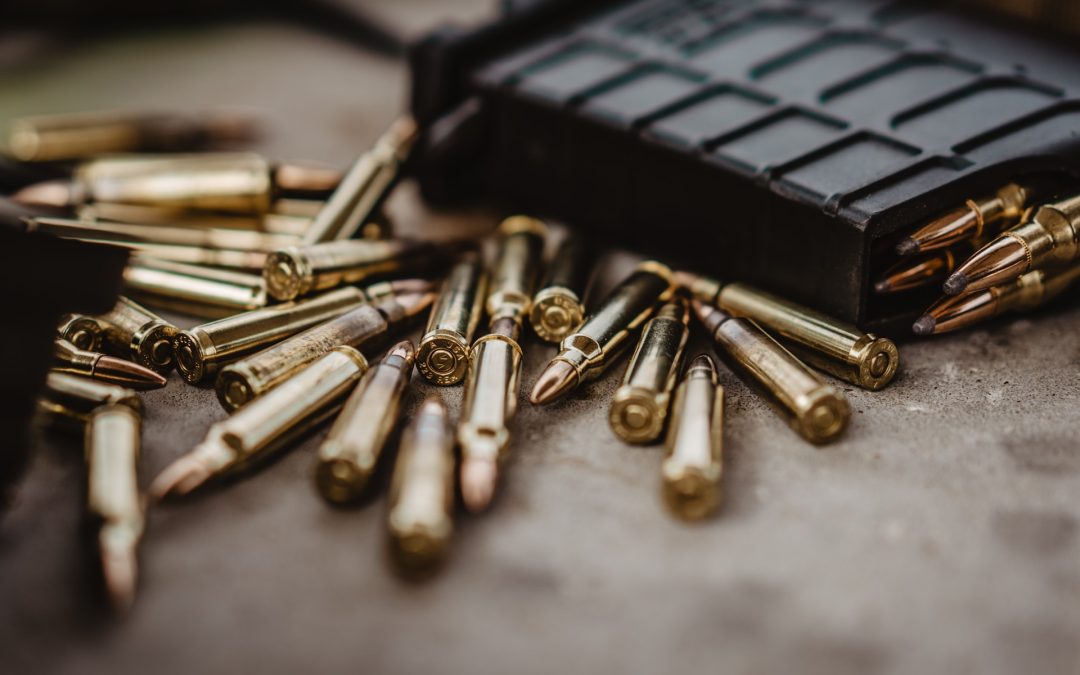The size of the caliber you choose will significantly impact your shooting. Make sure you use the right bullets and powder weights when reloading brass. If you don’t, you could end up with ammunition that doesn’t work or that is dangerous.
Here are three factors that help determine the right bullet size for what you need them for:
1. The Caliber
Be sure to check the caliber type stamped on the bottom rim of the brass before reloading. It is very important to load new bullets by accurately measuring the size rather than estimating by eye.
For instance, the .223 and the 5.56 are often confusing rounds. The 5.56 is a military round designed to shoot at a higher pressure than the .223. If you try to shoot the 5.56 from a .223 Rem only rifle, you risk damaging the rifle and injuring yourself.
Different bullets are better for different purposes. If you’re doing target practice, you’ll want bullets with a high velocity. If you’re hunting, you’ll want ones with superior terminal performance and expansion.
Do your research to determine which characteristics are important to you, then choose your bullets accordingly. Once-fired brass that is of good quality will last for multiple reloading sessions.
2. Bullet Type
Some bullets are designed to expand on impact, while others are designed to penetrate. It all depends on what you are trying to achieve.
The hollow point bullet is designed to spread out into a flower shape when it enters the target, causing extreme trauma to the cardiovascular system and making it ideal for hunting or self-defense.
On the other hand, full metal jacket bullets will not open up and are tough enough to pierce through most materials. As such, they are less ideal for home defense because the bullet may go straight through the intruder and into the wall, potentially harming an innocent neighbor.
Many types of bullets vary in their design and function. Some bullets have plastic tips that expand when they come in contact with heat, causing damage similar to that of a hollow point bullet. Other bullets have exposed lead tips, which also cause damage upon impact without deforming in flight.
Heavier bullets usually have more stopping power and energy down range, but they also have more recoil. Bullets with more stopping power often require a special casing to handle the more extreme pressure. The type of bullet best depends on your specific needs and purposes.
3. Amount of Gunpowder
The type and charge of gunpowder you use will determine how well your rounds perform. For example, subsonic rounds travel below the speed of sound and can make very little noise when fired.
If you want to change the velocity of your rifle, you can either add or remove the gunpowder from the casing. Adding gunpowder will make the rounds go faster while removing gunpowder will make the rounds go slower. Be careful not to put too much gunpowder in the casing, as this can damage the weapon and harm the user.
Different calibers of firearms have different recommendations for the amount of gunpowder, or grain, that should be loaded into the weapon. The amount of gunpowder needed depends on the intended use of the firearm—for example, hunting, self-defense, or long-distance shooting—and the size of the caliber. Always refer to a reloading manual for proper powder charges.
Researching the correct amount of gunpowder for the particular firearm being used is important, as loading the wrong amount of gunpowder can have dangerous consequences.
Conclusion
When choosing the right bullet size for your needs, there are many factors to consider. The type of firearm, the intended use, and the desired results are all important factors to consider. With so many options available, it is important to research and select the bullet size that best suits your needs.
RedEye Reloading provides reloading accessories at fair prices, including bullets, powder, brass, and more. If you’re looking for reloading bullets in Myrtle Beach, look no further! Browse our shop now!
